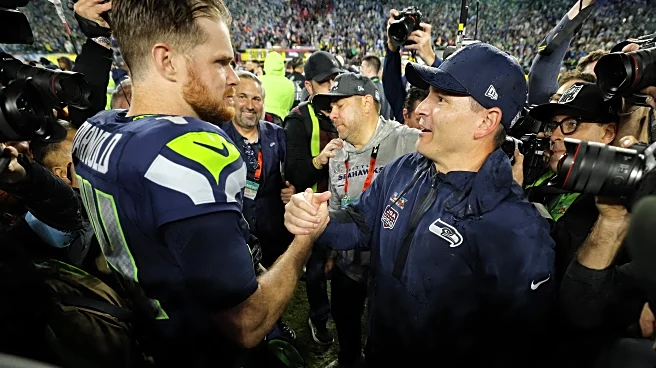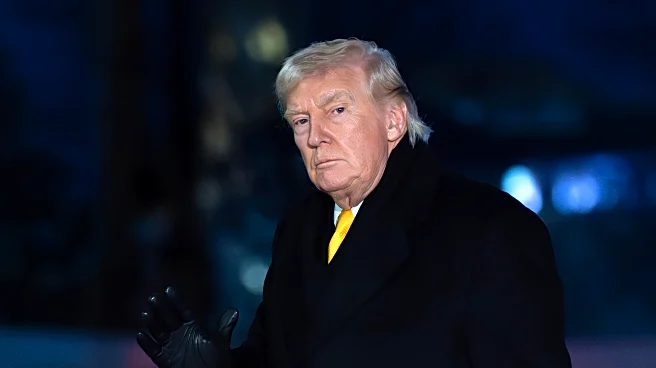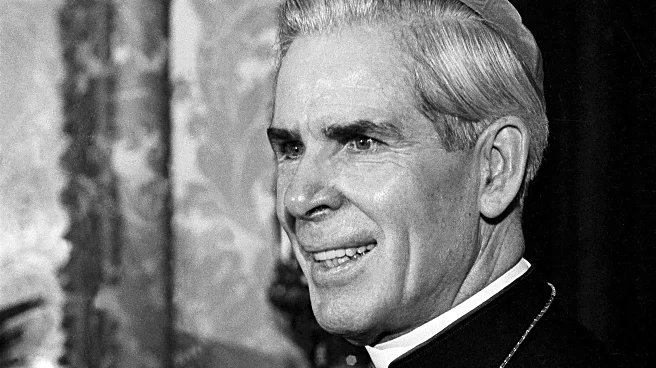What's Happening?
Ethan Hawke, known for his diverse roles and collaborations with director Richard Linklater, is currently promoting his latest film, 'Blue Moon,' at the Berlin International Film Festival. The film, directed by Linklater, explores a fictional 1943 meeting between Jewish songwriters Richard Rodgers and Lorenz Hart, with Hawke portraying Hart. The film delves into themes of fame, personal struggles, and the complexities of identity. Hawke's portrayal of Hart, a character vastly different from himself, highlights ongoing debates about representation in film, particularly concerning actors playing roles outside their own identities. Hawke acknowledges the importance of representation but also emphasizes the actor's craft of embodying diverse characters.
Why It's Important?
The discussion around representation in film is significant as it reflects broader societal conversations about identity, inclusivity, and authenticity in storytelling. Hawke's comments underscore the tension between artistic freedom and the push for more accurate representation of marginalized groups in media. This debate impacts casting decisions, audience reception, and the evolving standards of the film industry. As audiences demand more authentic portrayals, filmmakers and actors must navigate these expectations while maintaining creative expression. The outcome of this discourse could influence future casting practices and the types of stories that are told in Hollywood.
What's Next?
As 'Blue Moon' continues to make its rounds in film festivals, the conversation about representation in film is likely to persist. Industry stakeholders, including actors, directors, and producers, may need to engage more deeply with these issues, potentially leading to changes in casting practices and storytelling approaches. The film's reception and the ongoing dialogue could also influence how future projects are developed, particularly those involving historical figures or culturally specific narratives. Additionally, Hawke's upcoming projects, such as 'The Black Phone 2' and 'The Lowdown,' may further explore these themes, contributing to the broader conversation.
Beyond the Headlines
The debate over representation in film also touches on ethical considerations about who gets to tell certain stories and how those stories are told. This has implications for cultural preservation, the empowerment of underrepresented voices, and the responsibilities of artists in shaping public perceptions. As the industry grapples with these issues, there may be a shift towards more inclusive storytelling that honors the complexities of diverse identities while still allowing for artistic exploration.










